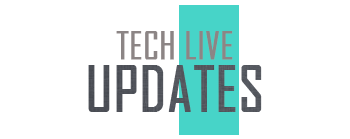
The data breach is a severe issue in the modern world as the value of personal information keeps increasing enormously. One billion personal records got breached in the past decade from top companies like Heartland Payment Services, Anthem Blue Cross, Equifax, Yahoo, etc. Every year, nearly 8000 records get stolen from the government, hospitals, educational institutions, and various service providers. Almost 38% of the victims affected by such data breach report a negative impact on their credit score, being unable to get new credit cards, losing money, etc.
Online and Offline Data Breach
Marketing companies, competitors of a particular brand, and hackers waiting vigilantly to get their hands on the personal data of a person are spread enormously on the internet. A data breach occurs both online and offline through various phishing campaigns. Most of the economic thefts involving credit cards happen online, and most of the identity theft happens through anonymous data collected offline.
For example, we order something online and give our credit card details to buy from a new website. We do not have any idea how safe it is to buy from a particular website. Similarly, the package arrives in a tightly packed cardboard box with all our residential addresses and several “personally identifiable data or PII” printed neatly on them. Most people do not care to remove the details and shred them, and even fewer people take safety measures to encrypt their credit card data while using it online.
Why Is A Data Breach Called an Epidemic?
Data Breach gets rightly called an “Epidemic” because it spreads pretty quickly on a particular demographic population. When a hacker or a hacking team gets their hand on a huge corporate company database, they can steal millions of user details within seconds.
For example, nearly 130 million customer records were exposed when hackers entered the Heartland Payment Systems database in 2009. Over 78 million records were exposed during the Anthem Blue Cross data security compromise. The company spent over $115 million to settle various lawsuits questioning their unsafe data protection procedures.
Just like an epidemic, a data breach causes severe damage to a vast mass of the population, unwanted fear, personal loss, and reputation damage to well-established businesses. It paves the way for competitors to overcome their business rivals easily. Monetary loss, mental stress, and reputation damage occur in case of a personal data breach.
Leading Causes of Data Breach
The primary threat is through hacking, which occurs in the following ways:
- Attractive emails promise enticing deals, making evasive malware enter the system when the email is opened and starting to track crucial personal information.
- Phishing campaigns aim at particular people or companies offering services at low prices. Their additional viruses enter the company mainframe when the company allows all the employees to use it.
- We are clicking on unwanted buttons while trying to download free music or video content online. Unwanted software gets installed into the system and starts tracking our browsing habits.
Apart from hacking, data is damaged or leaked when it gets transferred. For example, leaving the data copy behind in an old system, failing to shred important documents as soon their usage is over. Accidental exposure to the dark web also leads to severe issues as these people usually target youngsters vulnerable to blackmail threats.
Exposure of “personal health information” when PHI gets leaked from hospitals, insurance companies, and outsourcing companies doing backend work for the hospitals. Insider theft, employee error, and negligence from subcontractors also lead to a data breach in huge companies, whose competitors pay hackers and professionals to hack the data for them.
How Is Stolen Information Used?
- Details like social security numbers get sold for as little as $1 on the dark web.
- Credit card or Debit card information often costs up to $100 based on the credit limit.
- The full details about a single person starting from their social security number to address, mobile number, and all other relevant data, are termed “Fullz” and are available for as low as $30.
These details get mainly used to create identity theft. Fake driving licenses get designed with the details provided through the “Fullz.” Credit card details are used for making the person subscribe to various subscription services, which deduct money regularly from their account without their permission.
Loan frauds are committed using a fake identity. Often, the unsuspecting innocent commoner has to pay for the theft or go through enormous procedures to prove they are not guilty. People who purchase fake identities use them to join various prestigious jobs, travel abroad using credit card privileges, avail government subsidies allotted for the particular person, etc.
Medical records and passport-related details get sold for thousands of dollars to terrorist groups who use them for various illegal activities. Exposure of core medical details leads to kidnaps and even murders if the person has a rare blood group or skin crafting.
How to Prevent Data Breaches?
- Always stay alert and use proper security for your laptop, mobile, and all internet-related devices.
- Avoid giving your details to anonymous people online and offline.
- Don’t fall prey to emails claiming to be your long-lost friend trying to connect to you after a long time.
- Keep your profile details minimal in matrimonial websites, dating sites, and social media. Do not connect with people before confirming their identity through Nuwber.
- Always use reliable companies, business services, and e-commerce websites for shopping. If you are using a new service, check their safety settings thoroughly.
The data breach is an epidemic that spreads rapid-fire and affects millions of people at a time. It is essential to keep the personal data, business data, and health-related data as safe as monetary valuables due to the enormous value of them in the market. Take all the necessary precautionary steps to prevent falling pretty to identity thefts, financial scams, and misuse of your precious data. A stitch in time saves nine. Staying as secure as possible online and offline will prevent various future risks.





More Stories
11+ Best ThePiratebay3 Sites – Ultimate Pirate bay Alternatives
7movierulz iBomma – 11 Best Alternatives to Download & Watch latest Telugu Movies
How to Spam a Phone Number (7 best apps & services) with call, texts to Get Revenge?